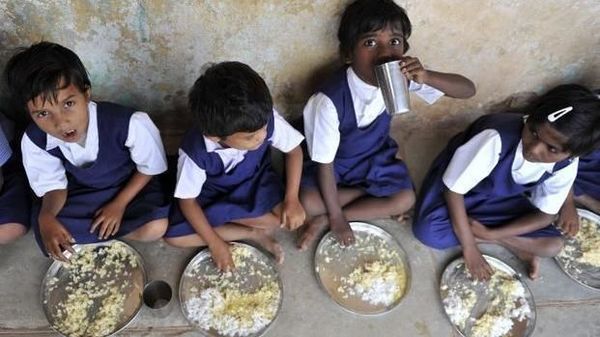New Delhi: As many as 807 complaints of corruption in the public distribution system (PDS) were received across the country till October 31, 2019, of which Uttar Pradesh reported maximum number of complaints, Union Minister of State for Consumer Affairs, Raosaheb Danve-Patil has said.
In a written reply to a question in the Lok Sabha Tuesday, the Union Minister said that UP has topped the list in PDS corruption cases with 328 complaints, while Bihar comes next with 108 complaints.
Significantly, UP has hit the headlines many times earlier for PDS scams. In 2014, a Lucknow bench of the Allahabad High Court directed the Central Bureau of Investigation (CBI) to investigate the land of the then cabinet minister of the state, Raghuraj Pratap Singh alias Raja Bhaiya, in a multi-crore food grains scam in the state.
Ravi Kishan, MP from Gorakhpur and Dr Ramshankar Katheria, MP from Agra sought details of these complaints as well as the steps taken to curb it.
Delhi ranks third in corruption cases in PDS with 78 complaints been received. Whereas West Bengal has received 48 complaints in such cases.
However, the states from which no complaints have been received include Manipur, Arunachal Pradesh, Mizoram, Sikkim. Apart from this, no complaints have also been received from the Union Territory of Andaman and Nicobar Islands, Chandigarh, Dadar Nagar Haveli and Lakshadweep.
The minister said that for the offence of violation of the provisions of the PDS (Control) Order 2015, there is a provision of punitive action under the Essential Commodities Act 1955. Under this order, the state and union territory have the power to take punitive action.
At the same time, to make the system more transparent under the National Food Security Act (NFSA) 2013, an institutional arrangement for monitoring it has been done by vigilance committee, District Grievance Redressal Officers, State Food Commission.
The minister said that to improve the public distribution system, the ministry is computerizing the PDS operation in collaboration with all states and union territories. Under this scheme, supply-chain management is being computerized by digitizing ration cards/beneficiaries and efforts are being made to bring transparency in it, besides, the ration shops will be automated using electronic point of sale (e-POS) devices.







































